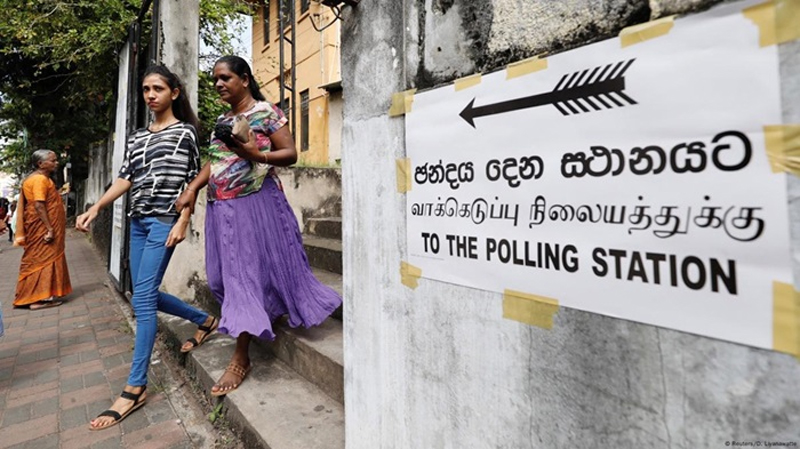- Limits vary between Rs.74 and Rs.160 per voter
- ROs, the sole authority for deciding on nominations
The Elections Commission (EC) and election monitoring groups yesterday called upon political parties and candidates to strictly comply with polls expenditure guidelines for the May 6 Local Government (LG) elections.
Executive Director of the People’s Action for Free and Fair Elections (PAFFREL), Rohana Hettiarachchi said all political parties, independent groups, and candidates should have proper mechanisms in place to ensure that they stay within the legally stipulated spending limits for the LG election in line with the new election spending laws designed to ensure a level playing field for all candidates.
“The relevant Gazette has been issued, and it is important to note that the allowable expenditure varies depending on the LG authority,” Hettiarachchi said.
Commissioner General of Elections, Saman Sri Ratnayake said that the lowest amount a candidate can spend per voter is Rs. 74, which applies to the Mannar Urban Council. “The highest limit is Rs. 160 per voter, set for the Lahugala Pradeshiya Sabha, which has a smaller number of voters scattered over a vast area,” he said.
The maximum expenditure limit of all other LG institutions come in between the aforementioned amounts, he said. These limits have been established in accordance with the Regulation of Election Expenditure Act, No. 3 of 2023.
Ratnayake said that 50 percent of the permitted expenditure can be spent by candidates contesting in wards, 30 percent by the party itself, and the remaining 20 percent by candidates who are appointed through the Proportional Representation (PR) system, based on the total number of votes secured by the party or independent group.
These limits apply for the duration of the campaign and voting periods, which included Postal Voting days (April 22, 23, and 24). Two alternative dates—April 28 and 29—have been allocated for those unable to cast their postal votes on the initially scheduled days.
Addressing the issue of rejection of nominations, Hettiatachchi said most political parties and independent groups wait until the final 30 minutes to submit their nominations, leaving no time to make even the slightest amendments. This is the primary reason many nominations were rejected, he said. “Over 420 nomination lists were rejected, and some parties have now turned to the Courts to challenge the decisions. It is in the hands of the judiciary now,” he told the Sunday Observer.
Several parties including the ruling National People’s Power (NPP) has taken legal action by filing three separate writ petitions, challenging the rejection of their nomination papers for the upcoming Local Authorities Election 2025. The nominations in question were submitted for the Mawanella Pradeshiya Sabha, Medawachchiya Pradeshiya Sabha, and Damana Pradeshiya Sabha.
The writ petitions, filed yesterday by NPP Secretary Dr. Nihal Abeysinghe and several other party members, named the relevant Returning Officers, District Election Officers, the Chairman and Members of the Election Commission and others as respondents. Complications in fulfilling the requirements to include stipulated percentages of female and youth representation, as well as the lack of supporting documents of the contestants have led to a significant number of nominations lists from every political party getting rejected this time, Ratnayake said. “The Returning Officer (RO) in a particular area has the sole discretion to receive or reject a nomination list and even the EC has no authority to intervene in case of rejected nomination lists.”
Set percentages on female and youth representation in nomination lists are required by the new amendments to the Local Government Elections Act No.17 of 2017. According to the amendments, a mandatory 25 percent youth representation is required for every nomination list.
If only one name in the nomination paper is rejected, and if the candidate to be removed is a youth (male or female) or a female candidate, the entire nomination paper is rejected, as the minimum youth or women representation will not be met. If only one name in the nomination paper is rejected, and if it does not affect the youth or female representation, the name of the relevant candidate is rejected. Supporting documents such as certified birth certificates should be included in every list to state the age of the youth representation and many political parties have either failed to include them or not done it in a proper way.
Ratnayake said the EC had adequately informed all parties about the proper procedures for submitting nominations. The EC said that 107 registered political parties and 49 independent groups have submitted their nominations. Approximately 8,500 candidates are set to be elected to 366 LG institutions at the upcoming election.




